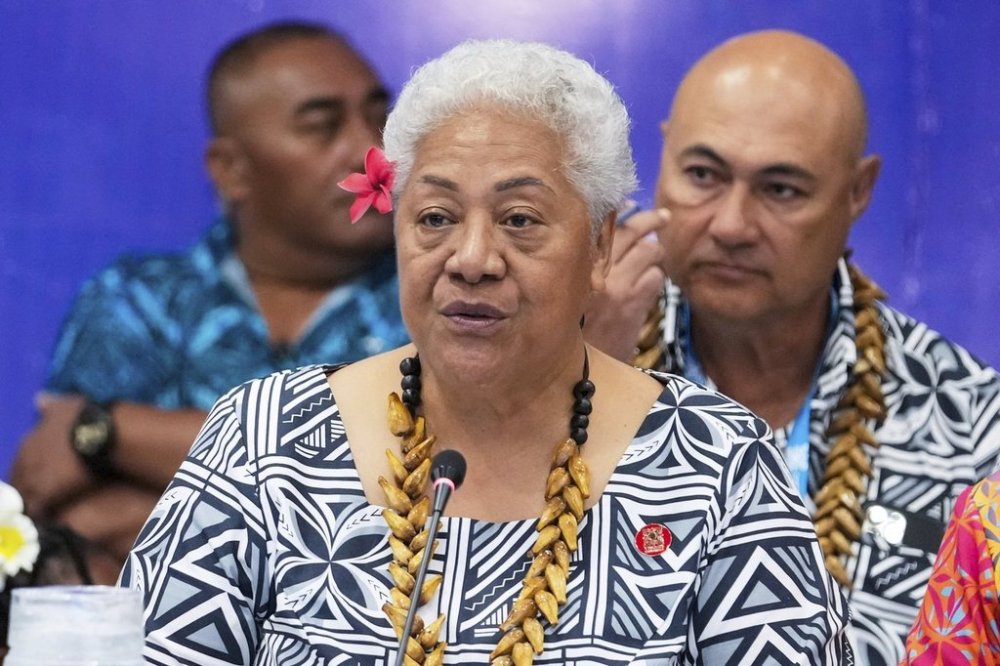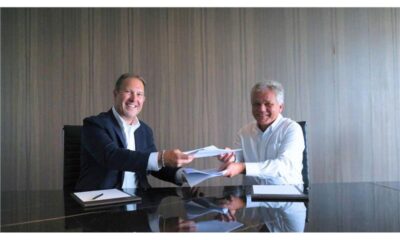World
Samoa Elects New Leader Amid Political Turmoil and Economic Strain

Voters in Samoa cast their ballots on September 1, 2023, in a pivotal election that could determine the future of the country’s first woman leader, Fiamē Naomi Mata’afa. The election follows the collapse of her government in May, prompting an unexpected early vote. Counting of the ballots is set to begin on September 4, 2023, with results anticipated by September 5, 2023.
This election is crucial, not only for Samoa’s domestic governance but also for its geopolitical standing in the South Pacific region. The political landscape has been tumultuous, with Fiamē dissolving Parliament after her budget was rejected in a swift vote in Apia, the capital. Her minority government faced intense challenges, including two votes of no confidence and internal strife within her FAST Party.
Key Political Players and Their Campaigns
In this election, Fiamē leads the newly formed Samoa Uniting Party. Her main opponent is Tuila’epa Sa’ilele Malielegaoi, who led the country for 22 years before Fiamē took office in 2021. He heads the Human Rights Protection Party and has made significant campaign promises, including the construction of a 23-kilometer bridge between Samoa’s two largest islands.
Another contender, La’aulialemalietoa Leuatea Polata’ivao Schmidt, who was previously sacked by Fiamē, now leads the FAST Party. He is currently facing allegations of harassment and defamation but denies any wrongdoing. Each candidate has focused their campaigns on addressing pressing issues such as inflation and electricity shortages, which have plagued the nation this year.
Challenges and Promises Ahead
The election comes at a time when many Samoans are concerned about rising living costs, especially food prices. Each major party has proposed initiatives to alleviate inflation’s impact. Fiamē aims to remove taxes from essential food items and increase pensions, while opponents have suggested more expansive measures, including universal payments and free healthcare.
Tuila’epa has suggested collaborating with international partners, particularly China, to fund his infrastructure projects. In contrast, Fiamē has adopted a cautious stance regarding debt accumulation, especially in light of Samoa’s high debt levels compared to its GDP.
This election is not just about governance; it may also reshape Samoa’s international relationships. Traditionally, Australia and New Zealand have been the main benefactors in the Pacific region. However, China’s increasing involvement through loans and development agreements has raised concerns among Western powers regarding its growing influence.
As the results of this election unfold, they will not only determine Samoa’s leadership but also signal potential shifts in its foreign policy and economic direction. The international community is watching closely, aware that the outcome could have implications for the broader geopolitical dynamics in the South Pacific.
-

 Politics4 weeks ago
Politics4 weeks agoSecwepemc First Nation Seeks Aboriginal Title Over Kamloops Area
-

 World5 months ago
World5 months agoScientists Unearth Ancient Antarctic Ice to Unlock Climate Secrets
-

 Entertainment5 months ago
Entertainment5 months agoTrump and McCormick to Announce $70 Billion Energy Investments
-

 Science5 months ago
Science5 months agoFour Astronauts Return to Earth After International Space Station Mission
-

 Lifestyle5 months ago
Lifestyle5 months agoTransLink Launches Food Truck Program to Boost Revenue in Vancouver
-

 Technology3 months ago
Technology3 months agoApple Notes Enhances Functionality with Markdown Support in macOS 26
-

 Lifestyle3 months ago
Lifestyle3 months agoManitoba’s Burger Champion Shines Again Amid Dining Innovations
-

 Top Stories2 months ago
Top Stories2 months agoUrgent Update: Fatal Crash on Highway 99 Claims Life of Pitt Meadows Man
-

 Politics4 months ago
Politics4 months agoUkrainian Tennis Star Elina Svitolina Faces Death Threats Online
-

 Sports5 months ago
Sports5 months agoSearch Underway for Missing Hunter Amid Hokkaido Bear Emergency
-

 Politics5 months ago
Politics5 months agoCarney Engages First Nations Leaders at Development Law Summit
-

 Technology5 months ago
Technology5 months agoFrosthaven Launches Early Access on July 31, 2025













